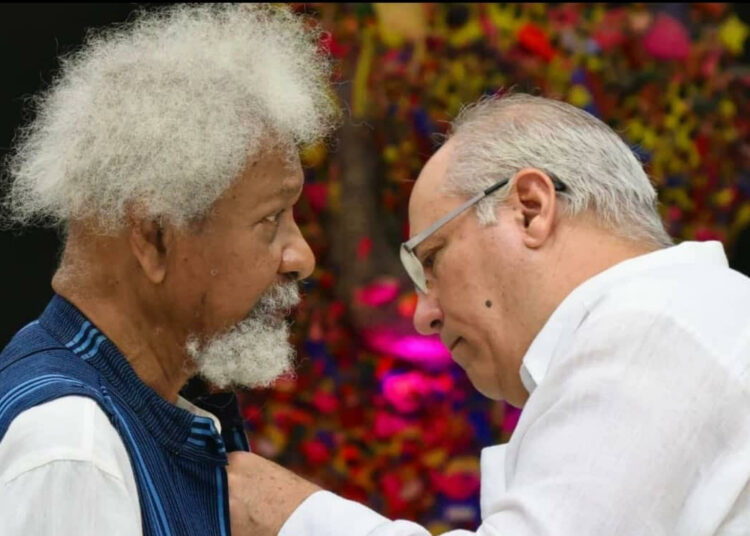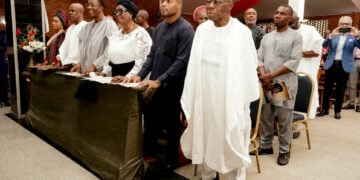Nobel Laureate Prof Wole Soyinka, was on August 23 honoured by the Cuban President, Miguel Diaz-Canel with the prestigious Haydee Santamaria Medal.
This medal, one of Cuba’s highest honours, was awarded to Soyinka in recognition of his lifelong dedication to justice, culture, and human improvement.
President Diaz-Canel, in a statement from the Cuban presidency, emphasised the significance of Soyinka’s visit to the country, describing it as “the visit of a brother who has always fought for just causes.”
He further remarked, “Awarding Soyinka the medal is an expression of many feelings for Cuba. The Haydee always harped on the importance of culture to revolution.”
Director of the Centre for Literary Research at Casa de las Americas, Jorge Fornet, echoed the president’s sentiments, “Awarding Soyinka the Haydee Santamaría Medal, which has been previously received by many of the most outstanding figures of Latin American, Caribbean, and other world intellectuals, is an act of justice that honours us.”
The event was also a dual celebration, marking Soyinka’s 90th birthday and commemorating the 60th anniversary of his first visit to Cuba.
Reflecting on the deep cultural ties between Africa and Cuba, Soyinka expressed his affection for the South American nation.
“Our ties with Cuba are not limited to art and literature, but also to liberation,” he said as fondly recalled, “I grew up listening to Cuban music in those days when there were gramophones, when there was no electricity. This has been a wonderful way to bring me back and remind me that Cuba is also my home. And it is proof that Yoruba is everywhere here, and that completes the spiritual aspect of people like me.”
The Haydee Santamaria Medal, named after a revolutionary icon, is awarded to Cuban and foreign individuals and groups who have significantly contributed to realising the objectives of the Casa de las Américas, a leading cultural institution in Cuba.
In addition to the national medal, Soyinka was also presented with the Dulce María Loynaz International Prize by the Union of Writers and Artists of Cuba.
A noted theatre critic and theorist, Omar Valiño lauded Soyinka as a “consistent man,” highlighting that his intellectual work is deeply rooted in the ancestral wisdom of the Yoruba culture.
Wole Soyinka’s distinguished career has seen him become a global icon of literature and social justice.
He was awarded the Nobel Prize for Literature in 1986, becoming the first African laureate in that category.





